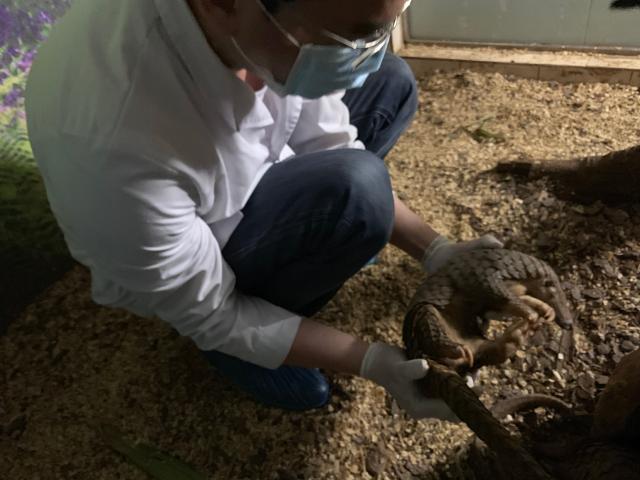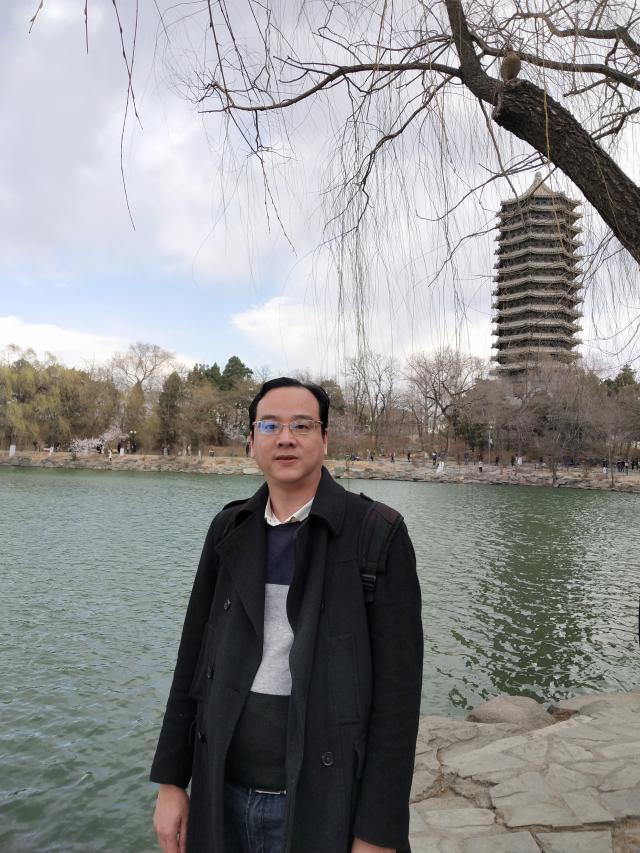Wenzhou-Kean University Researcher Works to Discover Coronavirus Treatments

Siew Woh Choo, Ph.D., of Wenzhou-Kean University, with a pangolin
A Wenzhou-Kean University research professor who has spent more than a decade studying the endangered pangolin, a scale-covered mammal that is native to Asia and Africa, is now using his expertise to explore possible links between the animal and the novel coronavirus.

Siew Woh Choo, Ph.D. said he hopes his research leads to treatments for the virus, officially named severe acute respiratory syndrome coronavirus 2 (SARS-CoV-2) and its disease, COVID-19. The virus began in Wuhan, China and was reported to the World Health Organization in December 2019. It has since spread to almost every inhabited continent.
“If everything is going well, I would expect our findings could give better insights into the key question on whether pangolins are the natural reservoirs or intermediate hosts of the COVID-19 coronavirus,” Choo said. “This may help to fight against the COVID-19 epidemic.”
The pangolin has been identified as a possible host of the coronavirus by some researchers in China, as scientists around the world work to trace the origins of the COVID-19 coronavirus. Choo is studying pangolin samples from the same batch of pangolins used by those researchers.
“It is a good starting point for me to work on my current pangolin samples,” he said. “Since I have been studying several potential drug candidates for treating cancers and found that they may have the potential to cure viral diseases, I am very keen to know whether the drug candidates that I am working on could kill this virus.”
Wenzhou-Kean University recruited Choo through a special program funded by the Wenzhou government. He received nearly $500,000 (RMB 3.5 million) in start-up funds to establish his labs and team and initiate research projects. Choo expects to include Wenzhou-Kean students in his research in the coming months.
“Dr. Choo’s work puts Wenzhou-Kean University on the map, internationally, for coronavirus research. Through his work, I hope the world community will move closer to identification of the intermediate host of the virus and the development of effective treatments against emerging virus diseases. And equally important, our students will benefit through research opportunities,” said Eric Yang, Ph.D., Kean associate provost for academic affairs and acting vice chancellor for academic affairs for Wenzhou-Kean University.
Provost and Vice President for Research and Faculty Jeffrey H. Toney, Ph.D., sees possibilities for Kean USA students also.
“Collaborative research between Kean USA and WKU continues to grow and will benefit faculty and students at both campuses,” he said. “Students can learn the benefit of interdisciplinary research and the value of international collaboration practiced by global corporations and universities.”
Choo led an international team that sequenced and analyzed the first pangolin genomes in the world a few years ago, mainly to understand their genetics and unique traits. Since pangolin are one of the most trafficked animals in the world because of the medicinal properties of their scales, Choo also hopes his research will help protect the species and generate new treatments in fighting human disease.